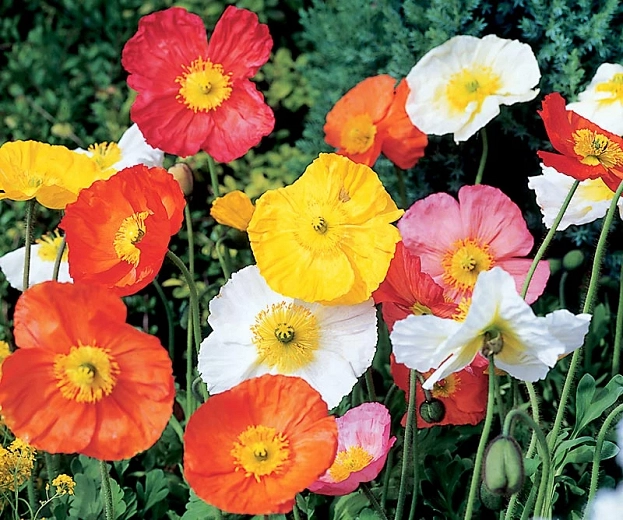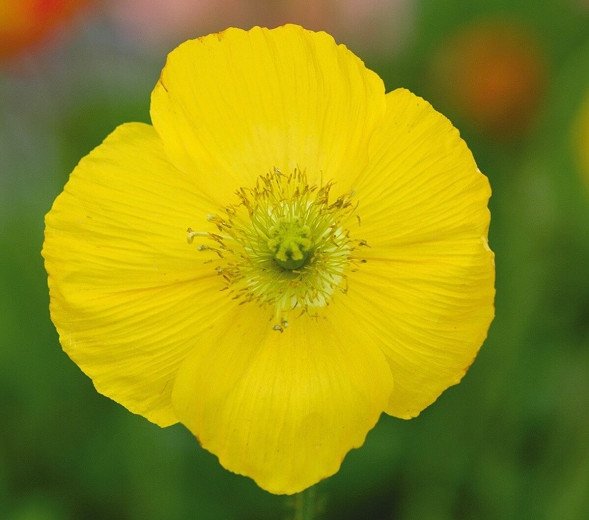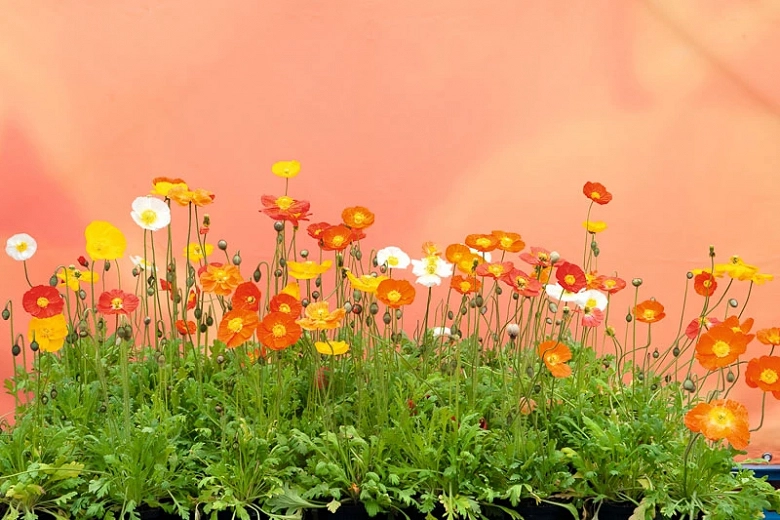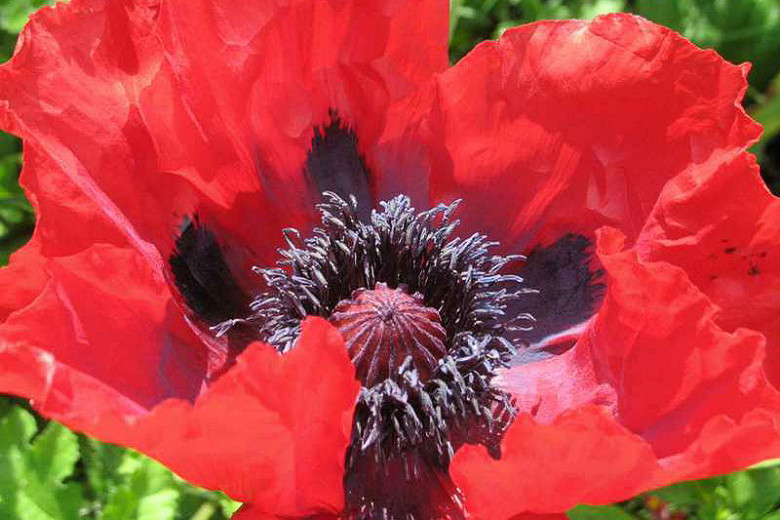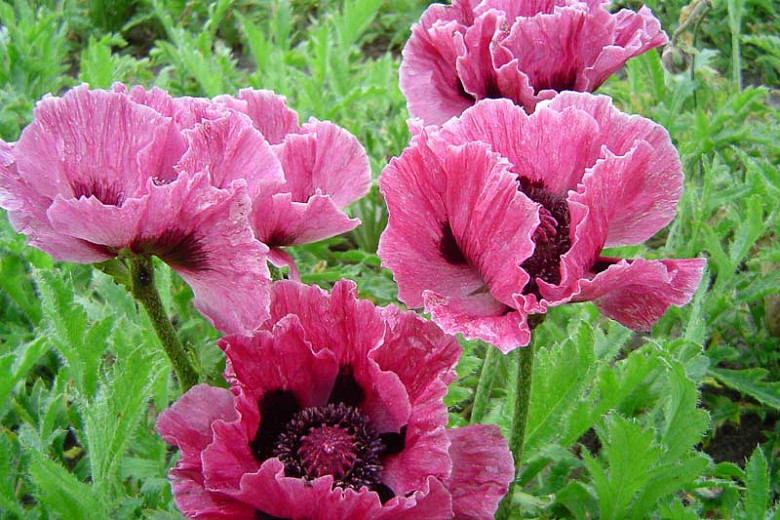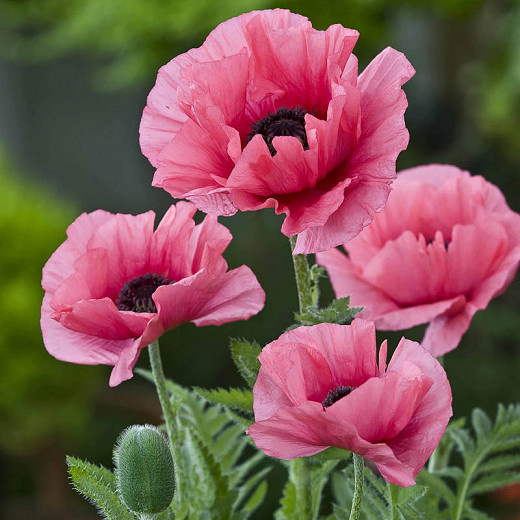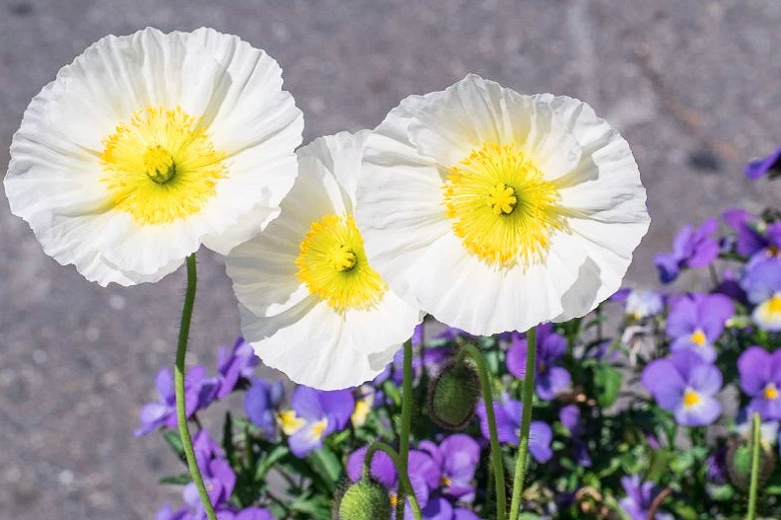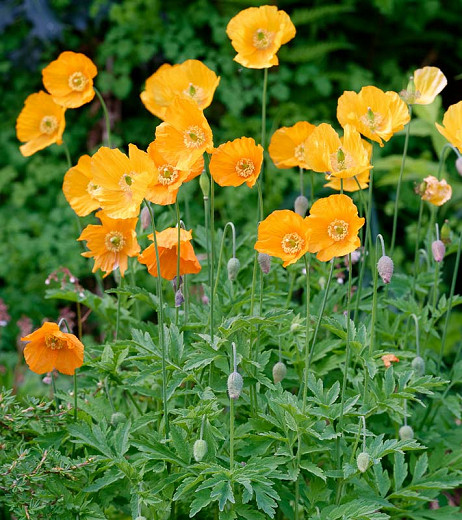Papaver nudicaule Spring Fever Series (Iceland Poppy)
Papaver nudicaule Spring Fever Series (Iceland Poppy) is a compact biennial or short-lived perennial boasting attractive, cheerful, crepe paper-textured flowers adorned with slightly glossy petals. Blooming from spring into summer (depending on sowing time), the ravishing blossoms are produced in bright colors including red, orange, yellow, pink and white.
Papaver nudicaule Spring Fever Series (Iceland Poppy) is a compact biennial or short-lived perennial boasting attractive, cheerful, crepe paper-textured flowers adorned with slightly glossy petals. Blooming from spring into summer (depending on sowing time), the ravishing blossoms are produced in bright colors including red, orange, yellow, pink, and white. Borne atop sturdy, upright, hairy stems, they rise above a small rosette of mossy green, pinnately lobed leaves. Hardy and fast-growing, the sparkling blossoms attract bees and butterflies to the garden. They are simply stunning en masse or drifting through cottage or wild gardens. Iceland poppies are amongst the best poppies for cutting, as they last for several days in the vase.
- Grows up to 6-10 in. tall (15-25 cm) and 7-9 in. wide (17-22 cm).
- Prefers full sun to very light shade in organically rich, moderately fertile, evenly moist, well-drained soils. Iceland Poppy thrives in climates with cool summer temperatures, but struggles in hot and humid conditions.
- Pretty addition to beds and borders, city gardens, cottage gardens, rock gardens, or containers. Excellent cut flower for fresh arrangements.
- Easy to grow and virtually care-free.
- No serious pest or disease issues. Keep an eye out for aphids and downy mildew.
- Removing faded flowers will encourage more buds to form.
- Cut back after flowering.
- Propagate by seed, sowing in autumn for flowers the following spring, or sow under cover in late winter and transplant for flowers in summer.
- Papaver nudicaule is native to subpolar regions of Asia and North America, and the mountains of Central Asia as well as temperate China (but not in Iceland).
- All parts of this plant contain toxic alkaloids. They are likely to be poisonous to mammals, though the toxicity would be low.
Requirements
| Hardiness | 3 – 7 |
|---|---|
| Heat Zones | 2 – 9 |
| Climate Zones | 1, 1A, 1B, 2, 2A, 2B, 3, 3A, 3B, 4, 5, 6, 10, A2, A3 |
| Plant Type | Annuals, Perennials |
| Plant Family | Papaver – Poppies |
| Exposure | Full Sun |
| Season of Interest | Spring (Early,Mid,Late)Summer (Early) |
| Height | 6" – 10" (15cm – 25cm) |
| Spread | 7" – 9" (17cm – 22cm) |
| Spacing | 7″ – 9″ (17cm – 22cm) |
| Water Needs | Average |
| Maintenance | Low |
| Soil Type | Chalk, Loam, Sand |
| Soil pH | Acid, Alkaline, Neutral |
| Soil Drainage | Well-Drained |
| Characteristics | Cut Flowers, Showy |
| Attracts | Bees, Butterflies |
| Garden Uses | Beds and Borders, Patio and Containers |
| Garden Styles | City and Courtyard, Gravel and Rock Garden, Informal and Cottage |
